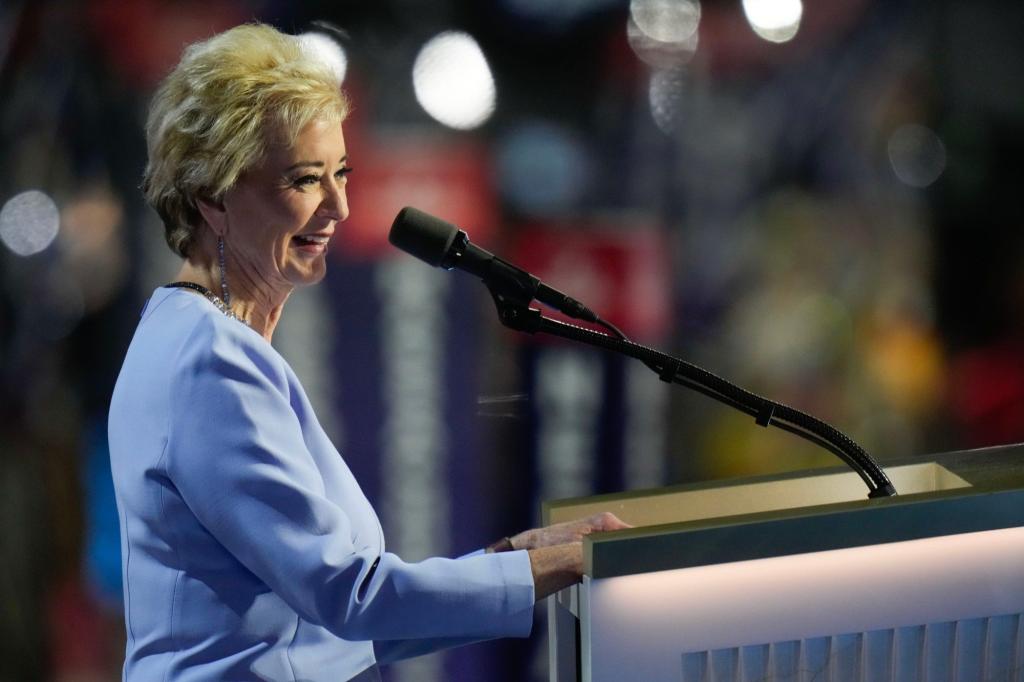Breaking News
Trump’s education pick has a national school-choice mandate

The recent election night marked a significant shift in K-12 education politics in America. Pro-school-choice candidates winning in states like Texas, along with President-elect Trump’s emphasis on school choice, signified a potential end to the 40-year dominance of teachers’ unions in American politics.
Supporting school choice has historically been seen as a risk for candidates due to conventional wisdom and heavy union political influence.
However, in 2024, voters broke through these barriers, and Trump and other state leaders are capitalizing on this momentum.
During his campaign, Trump made school choice a central focus, describing it as one of the most important initiatives. He pledged to sign legislation for a federal tax credit scholarship program for K-12 education.
By appointing Linda McMahon as Secretary of Education, Trump reinforced his commitment to expanding school choice. McMahon has a strong track record of supporting school-choice legislation.
She currently chairs the board of the America First Policy Institute, which has worked with organizations like the American Federation for Children to pass school-choice laws nationwide.
Surprisingly, even blue states like New York stand to benefit from the federal push for school choice under the new administration.
States like New York, which have resisted state-funded scholarship programs, will now see families benefit from tax-incentivized scholarships.
The federal legislation will allow individuals donating to local scholarship groups to receive a dollar-for-dollar tax credit, providing significant incentives for supporting education choice.
This program will empower parents in New York and other states to make choices about their child’s education, challenging the traditional influence of teachers’ unions.
Furthermore, it will foster competition in education, encouraging improvement in public schools.
Despite the teachers’ unions’ efforts to influence legislators, their power has waned, as seen in states like Texas.
One of the most notable turnarounds is in Texas, where Republican candidates who opposed school choice faced defeat in the recent election cycle.
By prioritizing school choice, both Democrats and Republicans secured victories in key races, leading to a pro-school choice majority in the Texas House.
With Texas on the verge of universal school choice eligibility, half of American families across 34 states will have access to school-choice programs. If federal legislation is passed in 2025, families nationwide will have educational freedom.
This shift sends a clear message to politicians regarding the importance of supporting educational choice for families.
Recent actions in states like North Carolina, where lawmakers overrode a veto to fund the school-choice waitlist, demonstrate the growing momentum for school choice across the country.
Leaders like Trump, McMahon, and the Texas legislature are now positioned to enact significant reforms in education, shaping the future of the American education system.
The year 2024 marked a pivotal moment in education politics, and the trajectory towards educational freedom is set to continue in 2025.
Tommy Schultz is the CEO of the American Federation for Children and AFC Victory Fund, the nation’s largest school choice advocacy and elections organizations.
-

 Destination8 months ago
Destination8 months agoSingapore Airlines CEO set to join board of Air India, BA News, BA
-

 Breaking News10 months ago
Breaking News10 months agoCroatia to reintroduce compulsory military draft as regional tensions soar
-

 Gadgets3 months ago
Gadgets3 months agoSupernatural Season 16 Revival News, Cast, Plot and Release Date
-

 Tech News12 months ago
Tech News12 months agoBangladeshi police agents accused of selling citizens’ personal information on Telegram
-

 Productivity11 months ago
Productivity11 months agoHow Your Contact Center Can Become A Customer Engagement Center
-

 Gadgets3 weeks ago
Gadgets3 weeks agoFallout Season 2 Potential Release Date, Cast, Plot and News
-

 Breaking News10 months ago
Breaking News10 months agoBangladesh crisis: Refaat Ahmed sworn in as Bangladesh’s new chief justice
-

 Toys12 months ago
Toys12 months ago15 of the Best Trike & Tricycles Mums Recommend























